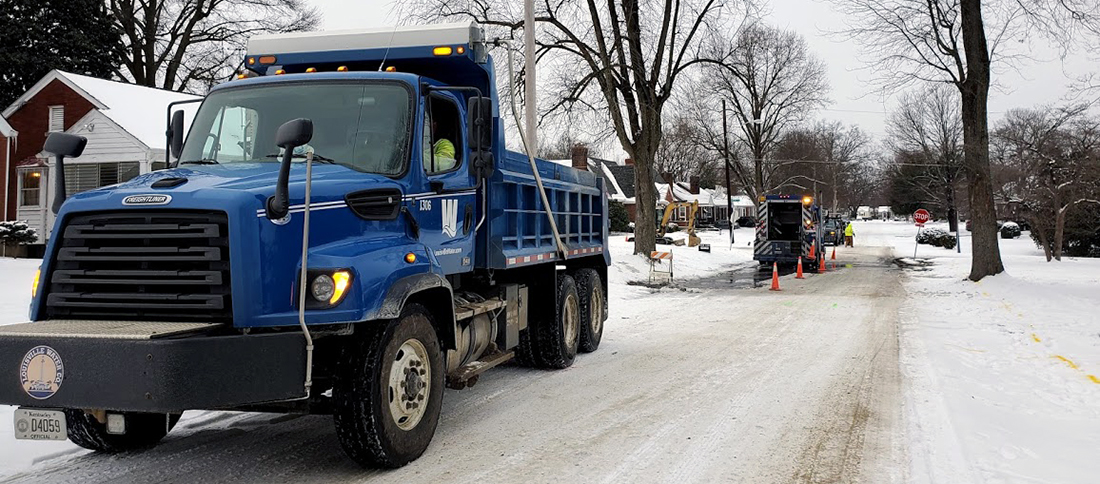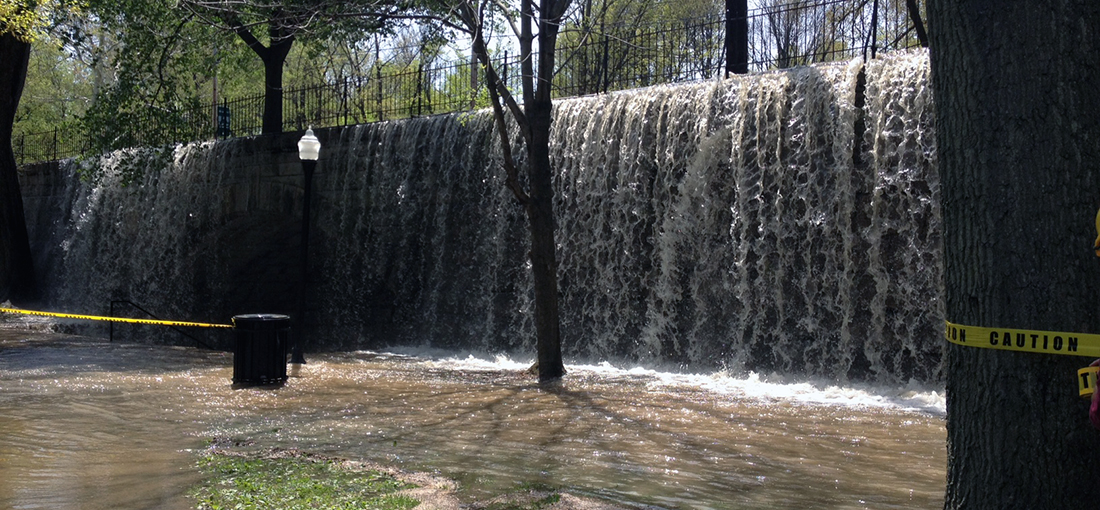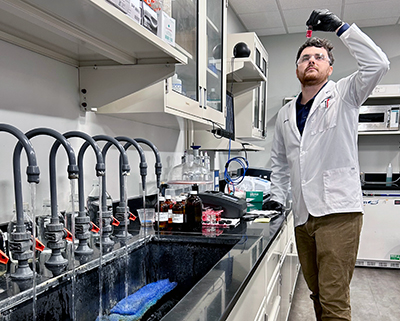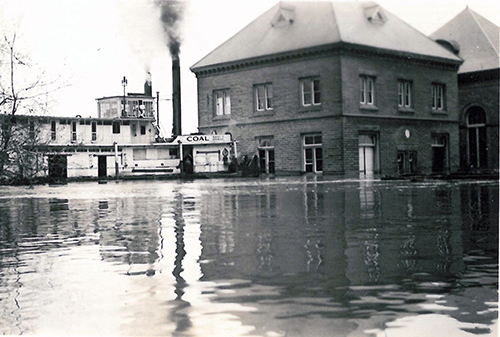Every industry experiences unpredictable challenges. Some, maybe more than others.
Water utilities rely on ever-changing rivers and streams to do their jobs, which requires an impressive level of problem-solving, creativity, and adaptability.
The uncertainty of a water main break or large flood can feel overwhelming and daunting. But for some people, like Louisville Water Dispatcher Beth McAnelly, this uncharted territory is exciting.
As a dispatcher, McAnelly works in Louisville Water’s nerve center as the first line of defense for any water emergencies. She intercepts calls from customers, fire and EMS, police, Louisville MSD, Louisville Water’s customer service team, and crews in the field. With more than two decades under her belt, McAnelly has received some crazy calls.

One of her most memorable water emergencies was a main break in Tyler Park in April 2014.
“I got a call about a waterfall in Tyler Park, but there is no waterfall in Tyler Park.” McAnelly laughed.
She said she started getting calls from customers, colleagues, and Louisville Metro about roads caving in and flooded streets.
“That’s when you know you’ve got a ‘big one,’” she said.

McAnelly went down her list of crew members on shift that day and people just started flying out the door.
“It’s pretty interesting how everybody just jumps in,” she said.
Thousands of Highlands homes and businesses were under a boil water advisory for the water main rupture at the intersection of Eastern Parkway and Baxter Avenue. This break spurred a four-year project to replace the nearly 100-year-old water main.
In 2020, Louisville Water completed the largest water main replacement project in its history. The “Eastern Parkway Project” replaced 6.4 miles of water main without impacting the character of the historic corridor or water service. Louisville Water used an innovative technique called “slip lining” to complete the project with minimal digging, which pushes a smaller pipe inside the original pipe. Louisville Water is using this same approach to complete the current Oak Street Project.
“It’s stressful and things get crazy, but it’s neat to see how everyone responds,” McAnelly said.
Unfortunately, emergencies can come at any time – on the weekend, at night, and on holidays. Emily Fritz, Water Quality and Compliance Supervisor, knows this all too well.
“There’s one Christmas I know I’ll never forget,” she said.
In December 2018, there was a spill requiring a coordinated effort from both the water quality and production operations teams. A barge accident had dumped thousands of gallons of urea ammonium nitrate on the Ohio River near Cincinnati.
The teams decided to shut down the pumps at Zorn Avenue Pumping Station when the peak of the spill would pass by us. Since no water would be coming in, the operations staff had to ensure there was enough water supply to fill the tanks and reservoirs throughout the service area.
 Fritz, who was on the water quality team at the time, remembered taking shifts to monitor the water coming into the Crescent Hill Water Treatment Plant every 30 minutes. From there, Fritz and her team relayed what treatment changes needed to be made.
Fritz, who was on the water quality team at the time, remembered taking shifts to monitor the water coming into the Crescent Hill Water Treatment Plant every 30 minutes. From there, Fritz and her team relayed what treatment changes needed to be made.
With airtight communication, both teams slowed production without disrupting water service to the nearly one million customers who depended on it.
“It’s stressful in the moment, but when you come out on the other side, having that tie to public health makes it all worth it,” Fritz said.
This commitment to health and safety amidst crises can be seen throughout Louisville Water’s history.

Exactly 88 years ago in January 1937, Louisville experienced unprecedented rain, with water levels reaching 57.1 feet. At one point, there was 54 inches of water in the Zorn Avenue Pumping Station.
L. S. Vance, Louisville Water’s Chief Engineer at the time, came up with an idea to use the boilers of a steamboat to keep water flowing. It took about an hour to get the pumps rolling, but by 7:30 p.m., water was pumping into the Crescent Hill Reservoir.
Louisville Water employees don’t shy away from challenges – they embrace them.
As we continue to see temperatures drop in the coming weeks, Louisville Water remains committed to ensuring you get the same great-tasting water, no matter what.

